
Jose Maria Villalta is running for president of Costa Rica for the second time. Eight years ago, when he was first nominated, he got the third highest number of votes (17.25%) out of all of the candidates and was key for the Broad Front to win nine seats in Congress, one of them for Guanacaste.
The province was represented by former priest— and current candidate for legislator for Guanacaste with the Costa Rican Social Justice party— Ronal Vargas, until he resigned his seat due to accusations of sexual harassment. Then he was replaced by Suray Carrillo, who is again running for the legislature. She is in first place on the Broad Front party’s list of candidates for the legislature for Guanacaste.
She says the Legislative Assembly has been her trench. She has served there as a legislator twice, 2010-2014 and 2018-2022.
We spoke with Villalta in November of last year, while he was on tour in Guanacaste during the electoral campaign. He’s currently in fourth place of who people plan to vote for (4%), according to the latest poll by the Center for Research and Political Studies (CIEP for the Spanish acronym) of the University of Costa Rica (UCR).
He affirmed that if he becomes president, he would focus on five areas that would benefit the province: employment, tourism, education, infrastructure and the environment.
In this interview, the candidate addressed his plans to reduce the technological and educational gap in Guanacaste, prolong the life of natural resources and combat gender violence. This transcript was edited to improve its reading.
Guanacaste’s main sources of income are tourism, livestock and agriculture. These three types of economy are variable and depend on peak months. Do you have economic strategies that would bring more stable income flow to the province that doesn’t depend on seasons?
In the tourism sector [with the pandemic], it became clear that betting solely on megaproject tourism and international tourism is a weak strategy. I think that tourism should be diversified so that in low season periods, we can, for example, provide better incentives for national tourism, which is a subject that still has very clear pending tasks in Guanacaste. Likewise in the agricultural sector, it’s about diversifying production, continuing to advance agro-ecological production, integrated farms that produce their own energy and that can diversify products so that they don’t depend solely on a single product and the vicissitudes of the climate.
If we want more companies to come to Guanacaste, for other productive activities to be developed, we need to work very hard on the gaps in education, internet access and bilingualism so that other productive activities that give people more opportunities can also be developed.
But do you have a definite plan to create more jobs in the province?
Yes, of course. All of these things that I’ve talked to you about are part of a plan that starts with addressing the current unemployment situation as an urgent situation. So there’s a plan of short-term measures. It has to do with changes that must be made in the development bank, in the manner of promoting and managing public investment, the incentives for small businesses.
What plans do you have, for example, for Guanacaste’s fishing sector?
Yes. There are resources there that INCOPESCA (Costa Rican Fishing and Aquaculture Institute) has that aren’t currently being used in the right way. In some areas of the country, infrastructure is required that isn’t very expensive. Let’s say having a dock for unloading, a small dock on Chira Island. It isn’t something that can’t be paid for. So taking care of this priority infrastructure, promoting training, organizing efforts with public universities, with INA (National Learning Institute), with INCOPESCA, training to transform fishing skills and untangle the legal framework that currently exists. We firmly believe that community businesses and social solidarity economy need to be promoted as ways of developing these initiatives.
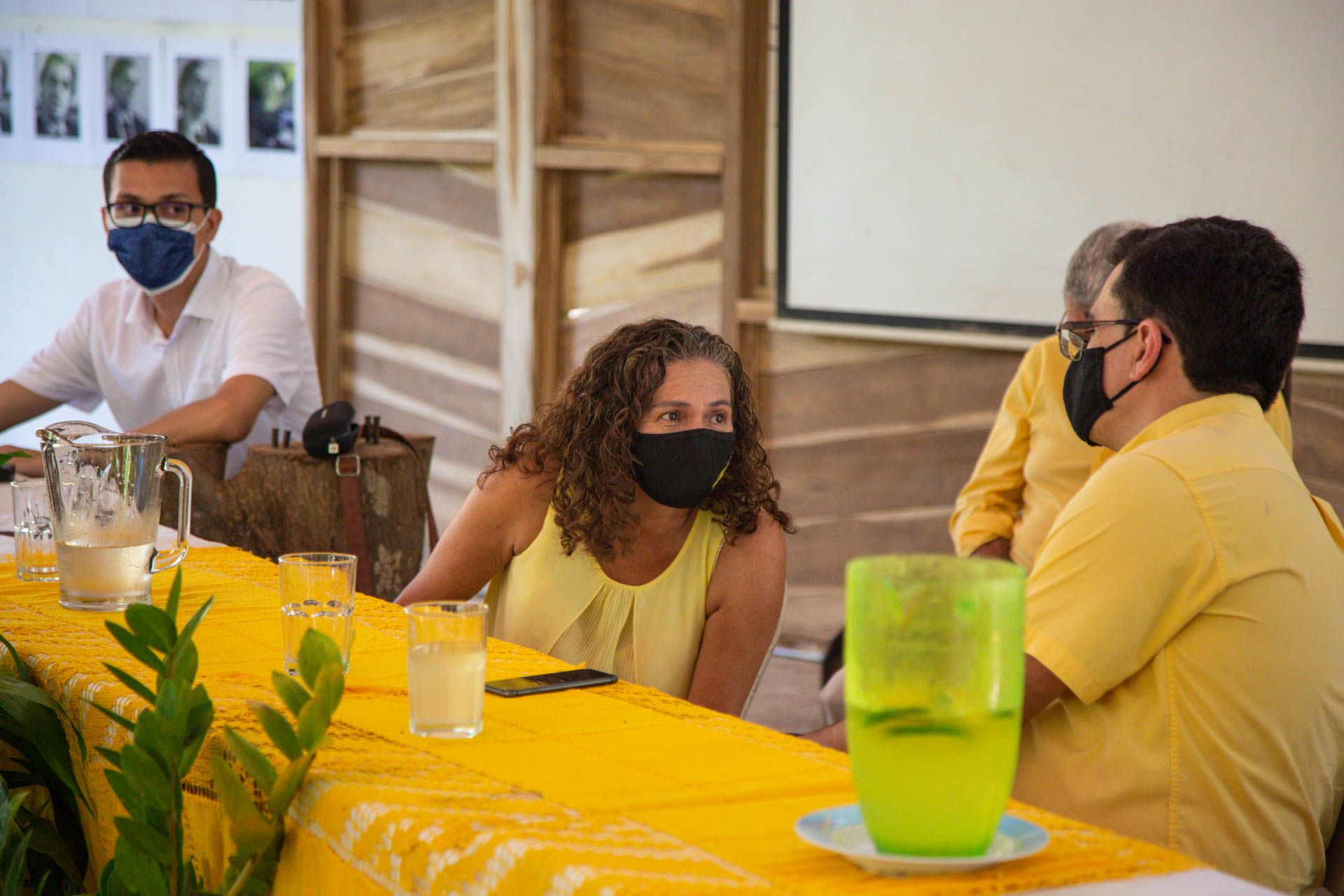
Former legislator Suray Carrillo is the Broad Front’s main candidate to represent Guanacaste in Congress. Photo: César Arroyo Castro
How would you improve the Internet connection for students in the province and improve education and quality of life for these students, especially during the pandemic?
We believe that the entire CONATEL (National Telecommunications Commission) model must be restructured. That hasn’t worked at all. And even if we provide internet access to elementary and high schools, that’s only part of the solution. We need to strengthen the Connected Homes program, which is another internet access alternative so that low-income people who live in areas where they have the possibility of connecting are able to do so. The process of bringing fiber optics and bringing the connection to those places is going to be slower. That’s why other strategies have to be promoted there. We have suggested them in writing to the current Minister of Education and the current Minister of the MICITT (Ministry of Science, Technology and Telecommunications) and they haven’t felt like giving solutions.
What did you propose?
We proposed to them applying the emergency measures that are in the Telecommunications Law to promote the connection of students who can only connect through the cell phone mobile device. There are many homes that don’t have Internet but do have a cell phone connection. We suggested to MEP (Ministry of Public Education) that they apply the emergency measures taken into account by law to eliminate the charge for downloading for those students who need to connect during school hours. It’s not something that’s technically impossible. MEP knows which households need it but they didn’t feel like it, probably due to pressure from the telephone companies, but this is an emergency issue. It’s recognizing in the law that the Internet is a public service and that access should be recognized as a human right.
How would your government try to reduce the educational gap that Guanacaste students have compared to others in the Greater Metropolitan Area (GMA)?
My government would declare education to be in a state of emergency. The issue of educational infrastructure is key. We already talked about the internet, but also the issue of the state in which many elementary and high schools in Guanacaste are in, with a declaration of health orders or schools that haven’t been built because the money was stolen from the educational trust that had been set up or wasn’t enough, they say. We need to inject more resources, channel resources from the surpluses of different institutions.
The other big issue obviously has to do with the part about content and obviously there, a clear diagnostic is needed and adjust the study programs, the curricula, in order to be able to gradually resolve this gap.
Since the last decade, the gold miners of Abangares have needed to transition to other gold extraction techniques due to the danger posed by mercury, but that hasn’t yet happened. What plans do you suggest for it to finally happen?
Well, that is a very frustrating issue for me, because I was a legislator in 2010, when we approved the law that promoted that transition. It’s not a problem of the law. What happens is that the governments, that of Laura Chinchilla, that of Luis Guillermo Solis and now also that of Carlos Alvarado, have failed to comply with all the provisions of this law. Two laws have already been approved that look to extend the timeframe to stop using mercury, and it’s because the government institutions, the administrative part of the State, haven’t done their job.
And do you promise to fulfill the law if you get into office?
Of course. We have already identified some of the obstacles that prevent this from being done. For example, (the Administration of) Geology and Mines hasn’t felt like doing the paperwork to cancel those concessions and give them to those who really need them, to the cooperatives of traditional miners. That’s where the Ministry of Economy, Industry and Commerce (MEIC) has to come in; the National Training Institute (INA) and the Rural Development Institute have to come in. There have been proposals, there have been projects, but they come to nothing. A lot has to do with a lack of coordination between institutions and a lack of political will.
What plans do you have to improve the infrastructure conditions of the Peñas Blancas border in Guanacaste?
There’s a proposal that we’ve made so that the resources from the tax on legal entities, which is a tax that is destined for security programs, can also go to strengthening the capacities of the immigration system in general. We believe that modernizing the border has to be taking into account the people who live there, who work there, modernizing that but supporting the locals so that they form their local companies or community companies.
Speaking of immigration, after the start of the pandemic, dozens of refugee immigrants have denounced slowness and discriminatory treatment in their immigration processes. How would you improve this?
In the case of immigration regulations, there are many things that need to be reviewed, not only this discrimination issue of refugees. I’m not so clear about what exactly is happening. Yes, we have analyzed the issue a lot about the difficulties that arise so that immigrants can access decent employment.
But how would you change it?
I think it’s a matter of redirecting resources and also a [personnel] training issue. Shelters need to be built. Personnel need to be trained a lot and made aware. Certain laws need to be changed. It‘s happening now with the increase in refugee applications [due to the socio-political situation in] Nicaragua, but it had happened before with other immigration waves and Immigration hasn’t been prepared to face them either.
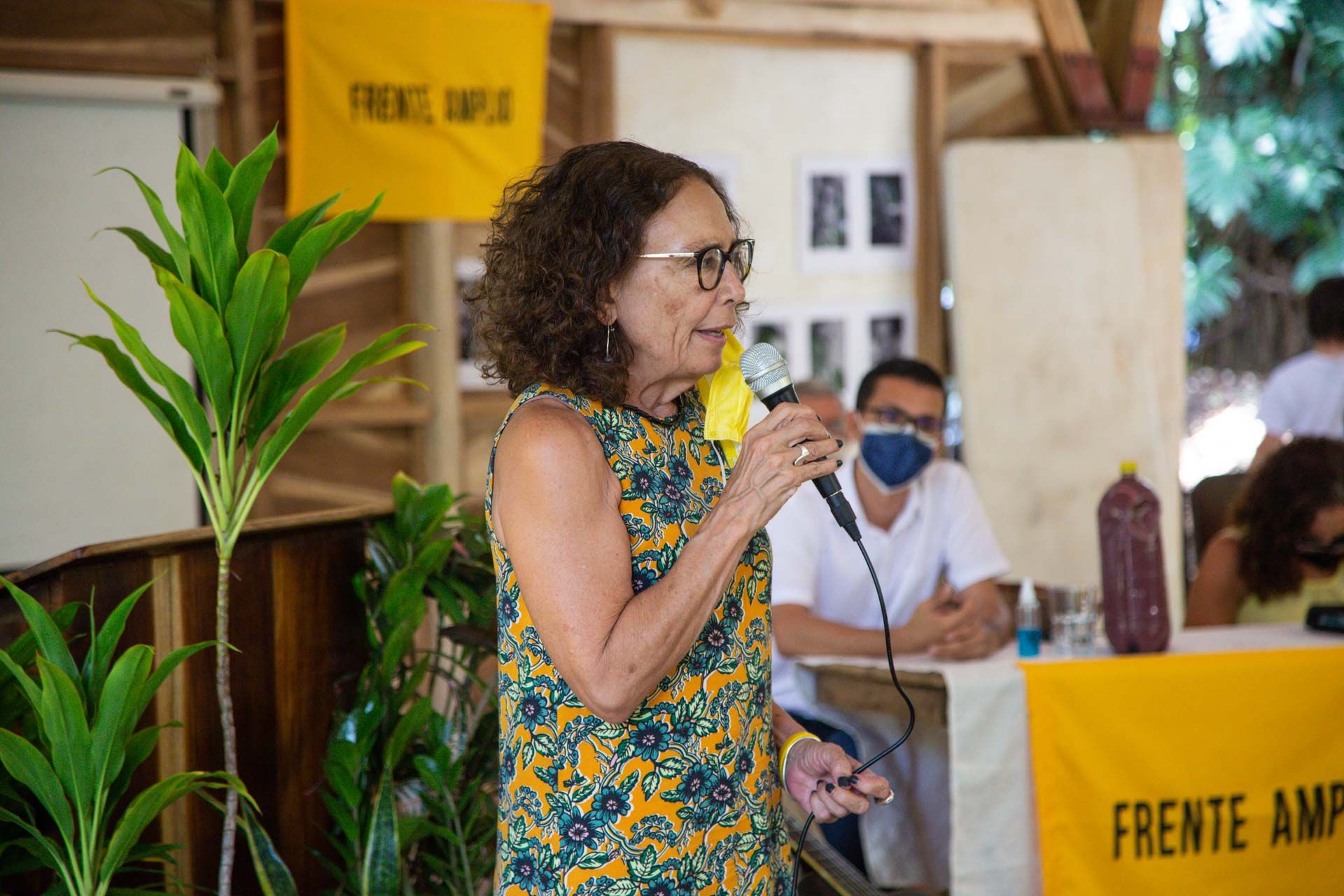
Patricia Mora is on the presidential ballot with Villalta as a candidate for the vice presidency. Mora served as minister for the condition of women in the current government of Carlos Alvarado. Photo: César Arroyo Castro
Guanacaste is one of the provinces with the highest rates of gender violence. What specific actions or laws would you promote from your office to deal with the problem in Guanacaste?
We are convinced that the fiscal rule approved by the Legislative Assembly must be reformed, where it forced budget cuts of all of the programs like INAMU (National Women’s Institute). We believe that we need to work more on preventive programs, to protect women who could be victims of violence and to work on the new masculinities and the machista (chaevenist) culture, which is the trigger for gender violence. Guanacaste should be one of the priority application areas to work from early childhood on deconstructing those cultural patterns that favor violence. That could imply a significant change in the medium or long term. In the short term, we need to strengthen strategies to prevent cases of gender violence from becoming femicides. The idea is for there to be a national network for gender violence prevention in each canton that provides support for these cases as soon as they are detected.
The Bagaces community continues to face uncertainties regarding water quality. Do you think that the actions of recent governments have been sufficient to address this problem?
I don’t think so. Some progress has been made, but it hasn’t been due to the good will of the authorities. Instead, it has been because the community has gotten organized and has exerted pressure. At least there is a clear route to a solution, the new project that AyA (Institute of Aqueducts and Sewers) is developing to bring water. The government doesn’t clearly communicate what it is doing or what it is going to do, so we have to work with the communities to promote a management model that is also different from AyA’s, much more participatory and much clearer.
Our water law dates back to 1942 and doesn’t take into account the impacts of climate change that we’re experiencing at this time. Will you promote a new law and if so, what elements should it contain to resist climate change?
We did promote a new law. We’ve supported some proposals. Certainly the water legislation is completely behind the times, but we have also had a negative experience because the bills that have been pushed in the past haven’t been well managed and have all failed due to opposition from various sectors. Communities aren’t taken into account, which is the most important thing.
What specific actions would you take to adapt sensitive territories, like Guanacaste, to the effects of climate change?
We have to greatly strengthen preventive, mitigation and adaptation programs, channeling, for example, resources from the National Emergency Commission (CNE for the Spanish acronym). Very little is done. Unfortunately, even though the law has already been changed, the CNE continues to focus its actions on disaster relief, but very little on prevention. We have to continue promoting education on climate change in educational programs at all levels, strongly address the change in the energy matrix.
We would also be more proactive in international forums, demanding that international cooperation be channeled to mitigate the impacts of climate change and to finance everything that is required to develop these alternative sources of energy.
Costa Rica is promoting a global initiative to protect 30 percent of the planet. By 2030, the country hopes to create more protected areas in Guanacaste and in other parts of the country to meet the goal. How will you prevent protected areas from experiencing financial problems like they are experiencing at this time?
In Guanacaste, there are many protected areas and I believe that before talking about creating a new protected area, we must guarantee the conservation, protection and proper use of the protected areas that we have. First, the budget restrictions that apply to SINAC (National System of Conservation Areas) have to be lifted to be able, for example, to appoint park rangers. We need to obtain fresh resources for SINAC, financing sources.
I believe that part of improving protected areas is linking local communities in a better way so they receive the benefits of conservation. This could help a lot so that the park rangers concentrate on the priority tasks of care, security, management. So they don’t have to be manning a ticket office.


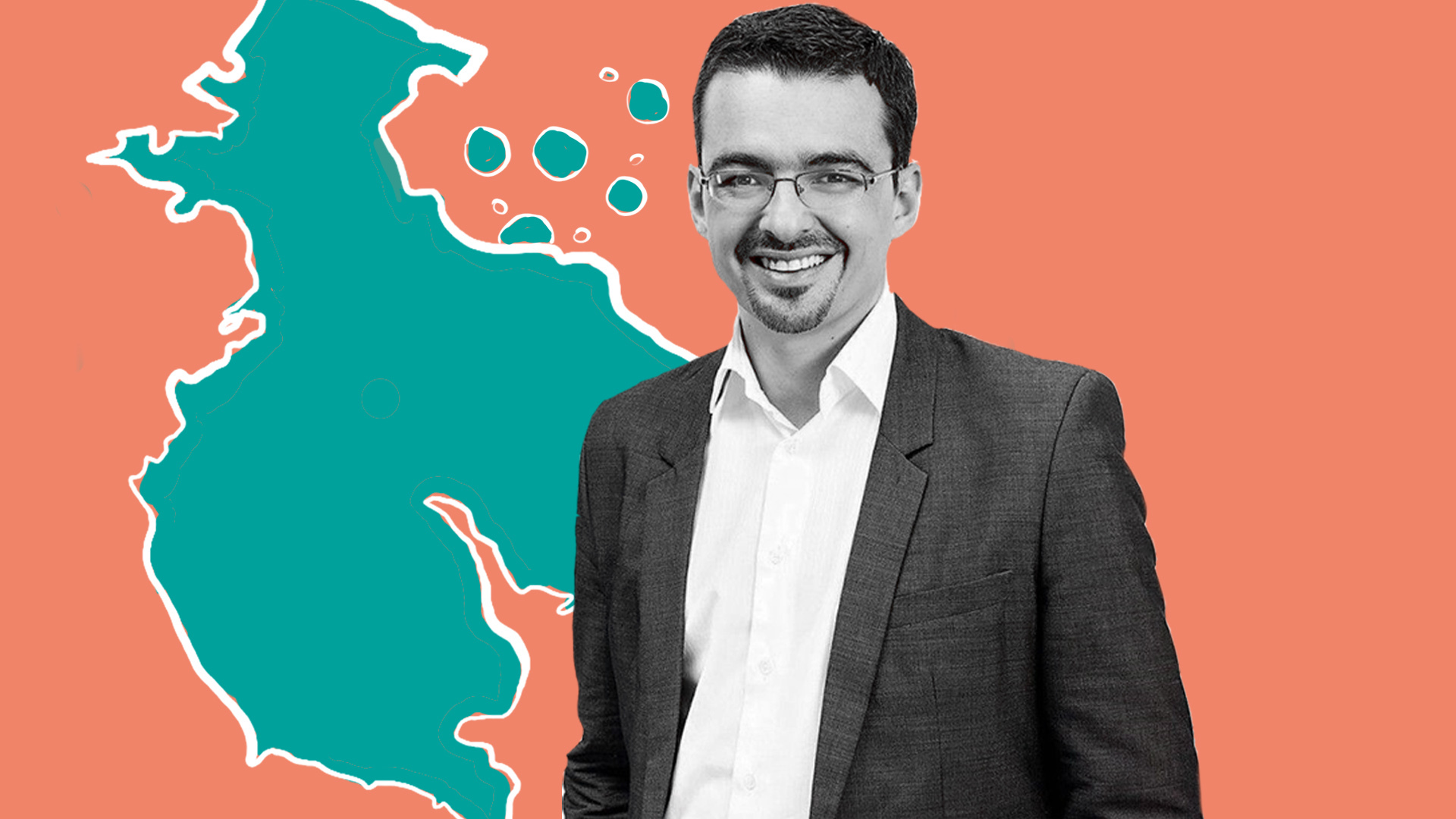
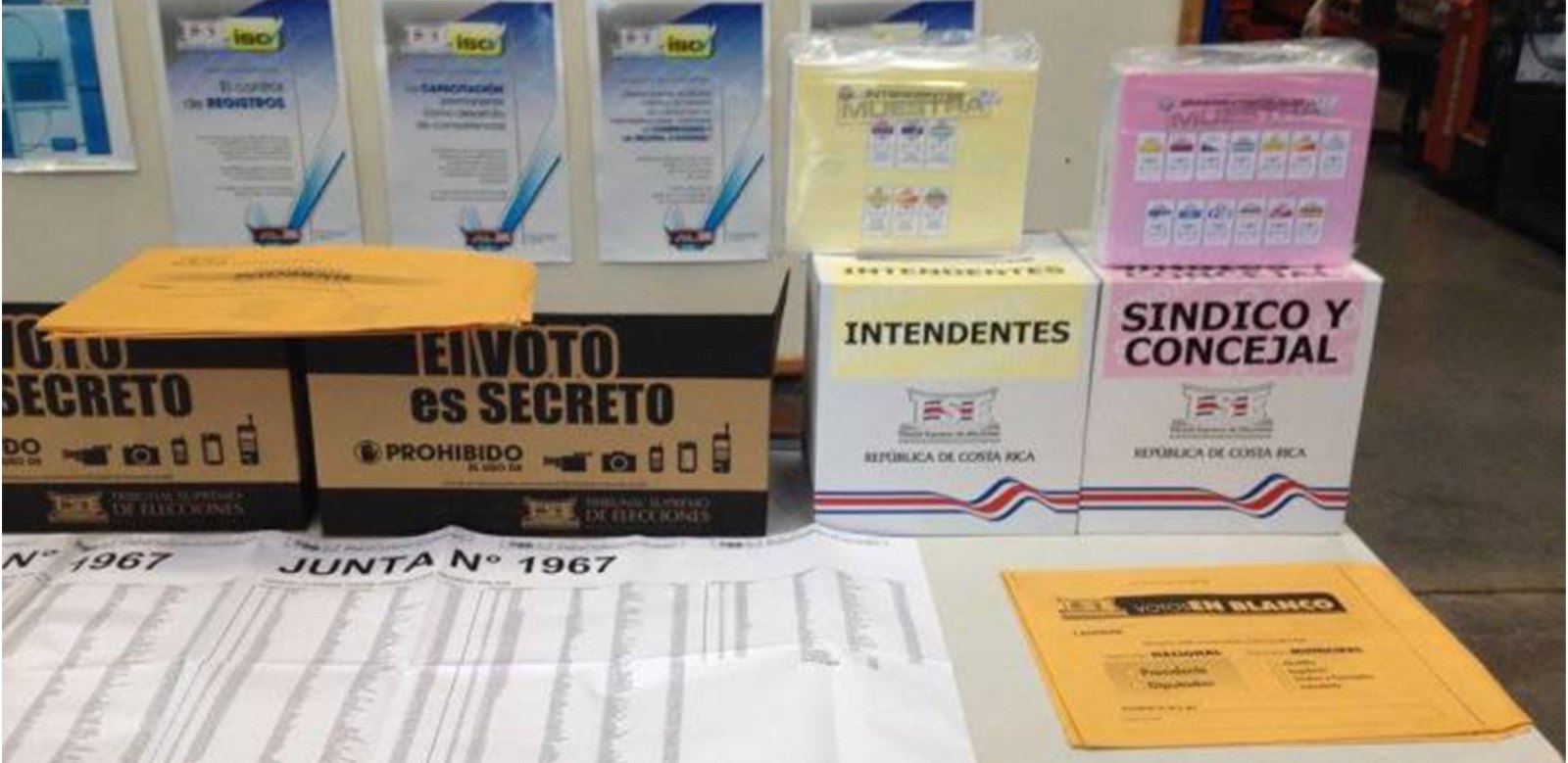
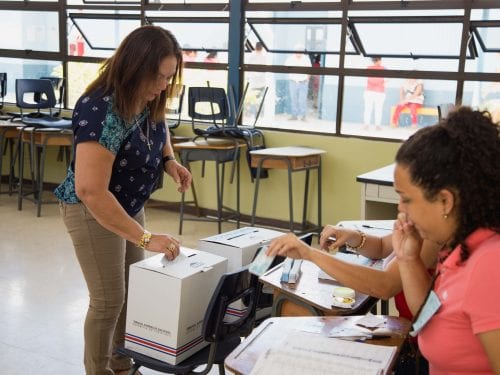
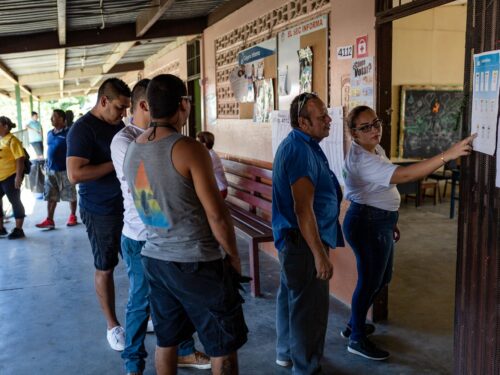

Comments